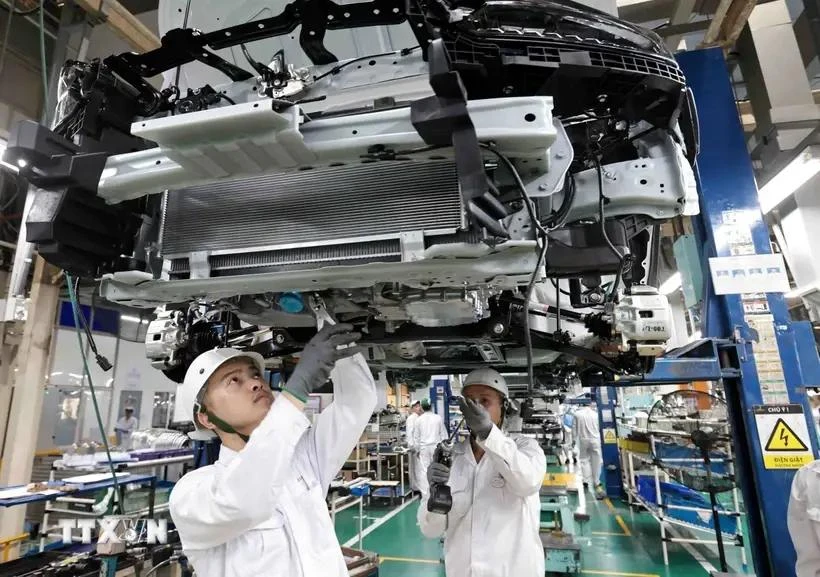WEB DESK: Funabashi Gaku, a senior advisor at the Japan International Cooperation Agency (JICA), has made an encouraging assessment about Vietnam’s industrial development prospect and insights into the country’s economic transformation.
Giving presentations at the Ho Chi Minh National Academy of Politics and the Diplomatic Academy of Vietnam on December 9-10, Assoc. Prof. Funabashi from the International University of Japan (IUJ), laid stress on the significance of shifting from the country’s current economic model, characterised by cheap labour force, technology transfer and FDI-relied industry, to an innovation-driven strategy that capitalises on domestic resources.
With a view to avoiding the “middle-income trap” and realising its goal of becoming a developed nation with high income by 2045, it is a must for Vietnam to improve labour productivity and create added value, he stated.
Notably, Funabashi expressed optimism about the country’s industrial development prospect, highlighting observation from his university where Japanese companies show keen interest in understanding Vietnam’s industrial landscape and prefer engagement with Vietnamese students to those from other developing nations. He said this trend has been mirrored not only in Japan but also in many other countries and across Europe.
The professor lauded Vietnam’s development path based on intrinsic strength and international integration, saying as excessive reliance on FDI could hinder the country’s upgrade of its status from a middle-income to a high-income nation, Vietnamese firms should strive to develop their own technologies, identify target markets, and focus on building their systems anchored by core industries and innovation.
Taking the semiconductor sector in which the Vietnamese Government plans to train 50,000 engineers by 2030, the Japanese expert highlighted development process of enterprises from Japan, the Republic of Korea and Taiwan (China). He held that technological advancements could begin with imitation, followed by continuous research, development and investment, underscoring the necessity to build strategies on existing resources and strengths as well as support from competent governmental agencies.
With insights into Japanese management practices, drawing from the automotive industry, he underscored the importance of information gathering, multi-stakeholder feedback, technology testing, and information sharing across production, research, and marketing domains, saying they have helped businesses take stock on tangible and intangible resources and combing them with others to make contributions to the development of the industrial sector.
Regarding technology transfer, he said Vietnamese companies should see it as initial steps, followed by private enterprises driving innovation to reach a higher position.
Funabashi acknowledged the support that the Vietnamese ministries and local administrations have provided for small-scale private companies. While these businesses may not currently represent the national industrial core, he sees them as potential future contributors to Vietnam’s economic development. He said JICA could join hands with the Vietnamese authorities to improve the capability of small firms.
Funabashi’s working trip to Vietnam is part of the “JICA Chair” programme which has been carried out since 2020 to share Japan’s modernisation success stories as well as promote cooperation with developing countries.


